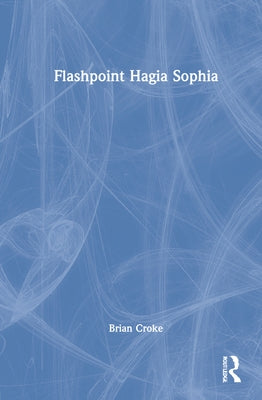Before you leave...
Take 20% off your first order
20% off
Enter the code below at checkout to get 20% off your first order
Discover summer reading lists for all ages & interests!
Find Your Next Read

Istanbul's Hagia Sophia ('Holy Wisdom'), or Ayasofya, is one of the world's most visited buildings. Yet, few visitors have any idea of its long and complex story, or why it has always been a place where history, religion and politics collide. In July 2020, Turkish President Erdoğan set off an explosive controversy by announcing that Hagia Sophia would now be modified into a mosque. This decision provoked fierce criticism from UNESCO because Hagia Sophia was enjoying World Heritage Site benefits. The United States, the European Union, Russia and Greece all chimed in. However, Erdoğan's action was wildly popular in Turkey, with its 99% Muslim population. Why is Hagia Sophia so important to modern Turkey? Why this provocative decision, and why now? How could all the international critics be ignored? Why does the world care so much about this old building? Why should it continue to care?
This book explains President Erdoğan's controversial decision in terms of Turkey's national, independent and Islamic politics, and as a response to the mosque massacre in Christchurch in March 2019 when his life was threatened by the gunman. Any consideration of Hagia Sophia's present and future also requires appreciation of the almost 1,500-year old story of this architectural marvel, from its inception as a church in 537 to its configuration as a mosque in 2020 and beyond. Because all world heritage sites depend on national management, Hagia Sophia will remain Turkey's responsibility, but the international community is watching to ensure Turkey honours Hagia Sophia's entire heritage, from the 6th century to the 21st century.
Brian Croke is an educator and historian with a special interest in Istanbul's Byzantine heritage. He is an Honorary Associate in Ancient History at the University of Sydney and is the author of Christian Chronicles and Byzantine History, 5th-6th Centuries (1992), The Chronicle of Marcellinus (1995), Count Marcellinus (2001), and Roman Emperors in Context (2021).
Thanks for subscribing!
This email has been registered!
Take 20% off your first order
Enter the code below at checkout to get 20% off your first order